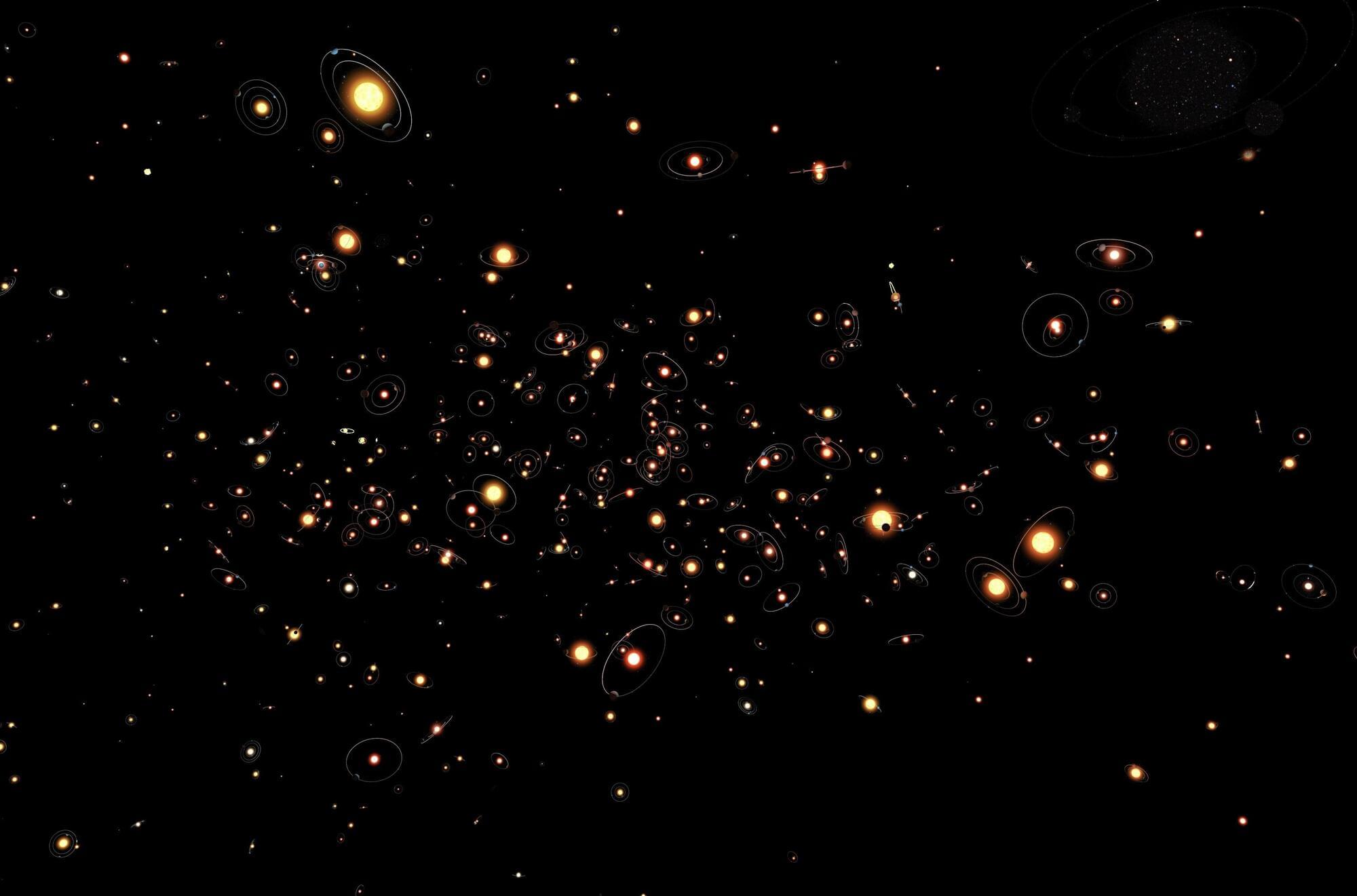More than 5,000 planets have been discovered beyond our solar system, allowing scientists to explore planetary evolution and consider the possibility of extraterrestrial life. Now, a UC Riverside study published in Physical Review D suggests that exoplanets, which are planets orbiting stars outside our solar system, could also serve as tools to investigate dark matter.
The researchers examined how dark matter, which makes up 85% of the universe’s matter, might affect Jupiter-sized exoplanets over long periods of time. Their theoretical calculations suggest dark matter particles could gradually collect in the cores of these planets. Although dark matter has never been detected in laboratories, physicists are confident it exists.
“If the dark matter particles are heavy enough and don’t annihilate, they may eventually collapse into a tiny black hole,” said paper first author Mehrdad Phoroutan-Mehr, a graduate student in the Department of Physics and Astronomy who works with Hai-Bo Yu, a professor of physics and astronomy. “This black hole could then grow and consume the entire planet, turning it into a black hole with the same mass as the original planet. This outcome is only possible under the superheavy non-annihilating dark matter model.”









